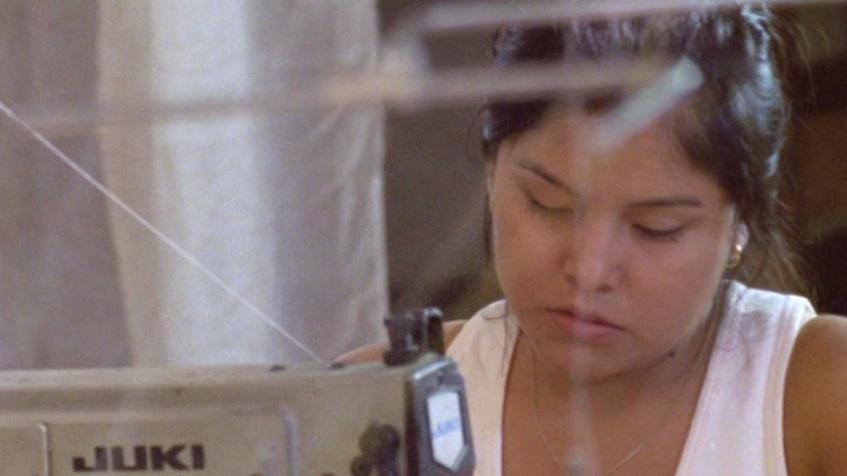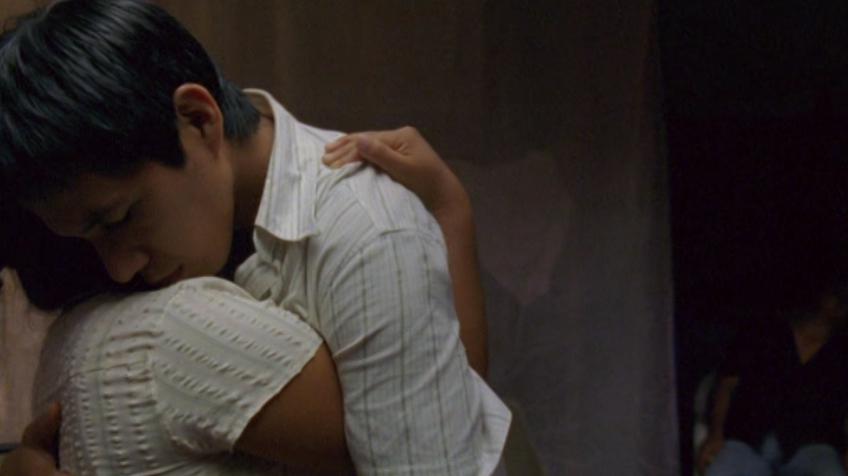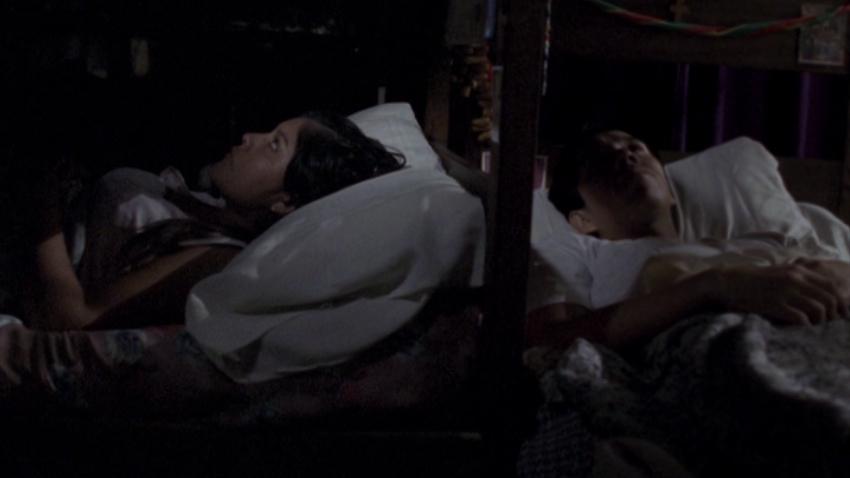Talleres Clandestinos
A job as a seamstress tempts Juana, a young Bolivian woman, to neighbouring Argentina. Her husband and child remain behind in their homeland. It doesn´t take long for the illusion of financial gain to burst - Juana is being exploited and must produce textiles for a luxury brand. Her employer´s demands become ever more absurd, working conditions become unbearable. When her son becomes ill, Juana starts making plans to return, but as far as her employer is concerned, leaving is not an option.
(production note)
A silver lining with a cloud. At the film´s very beginning young Bolivian Juana (Juana Salgueiro) has the extreme fortune to be chosen for a seamstress job in Argentina. But she soon realizes that the bus to Buenos Aires won´t be taking her baby or husband, and nothing can be done about it. After a quick goodbye, Juana leaves her husband and crying child behind.
And things are no better once she in arrives in the capital. Juana spends 16 hours each day sewing clothes in an illegal sweatshop. Both the boss and customer push the workers: Eight hundred fashionable children´s outfits must be put together in record time, brand-name clothes, of course. Someone else will do it if they don´t. The workers sleep at the factory. Juana finds out that her child is sick, and she faces the choice of either returning home and giving up the little money she has earned or continuing to slave away.
Talleres Clandestinos - "clandestine workshop" - is a film about people whose choices in fact do not involve any real choice. The cheerful radio music that plays in the sweatshop to cover up the sound of the sewing machines cannot however conceal the fact that this is modern-day slavery. Director Catalina Molina takes a realistic look at her protagonist, empathetic but without any illusions, and points out the drastic exploitation primarily in minor gestures, intimate moments and her direction: Helplessness revealed by the camerawork and editing is juxtaposed with stereotypical seamstress work, jump cuts tell us of monotony and the theft of part of an individual´s life. When, at the conclusion, the camera leaves the protagonist, from whom everything has been taken, and enters the anonymous urban environment, demands for corporate social responsibility seem like something dreamed up by business consultants from a faraway planet.
(Michael Palm)
Translation: (Steve Wilder)
Jury-Statement VILA DO CONDE 2010 (Award)
Nomination for European Film Awards 2010
Statement of the Jury (International Competition):
Unfortunately, this kind of siuation can be reproduced in any country in the world. This film is a fiction but also a testimony that contributes to make us remember the sad reality that the poorest have to confront. A film with a wonderful actors' direction, centered in the profoundly human nature of the main characters. The Vila do Conde short film nominee for the European Film Awards 2010 goes to: Talleres Clandestinos by Catalina Molina
"Talleres Clandestinos" von Michael Palm (dt)
Und in der Hauptstadt wird es nicht besser. In einem illegalen Textil-Arbeitsshop schuftet Juana täglich 16 Stunden an der Nähmaschine. Chef und Auftraggeber drangsalieren die Belegschaft: Achthundert schicke Kinderkleidchen wollen in kurzer Zeit zusammengeflickt sein, Markenklamotten, versteht sich. Sonst macht es eben jemand anderer. Geschlafen wird gleich in der Fabrik. Als Juana erfährt, dass ihr Kind erkrankt ist, steht sie vor der Wahl, entweder nach Hause zu fliehen und auf ihren ohnehin spärlichen Lohn zu verzichten oder sich weiterhin am Arbeitsstrich zu verdingen.
Talleres Clandestinos "geheime Werkstätte" ist ein Film über Menschen, die in der Wahl eigentlich keine Wahl haben. Die fröhlich dahinplätschernde Radiomusik, die im Workshop die verräterischen Nähmaschinengeräusche übertönen soll, kann nicht darüber hinwegtäuschen, dass es hier um moderne Sklavenarbeit geht. Regisseurin Catalina Molina blickt illusionslos realistisch, aber empathisch auf ihre Protagonisten und deutet die drastische Ausbeutung vor allem in kleinen Gesten, intimen Momenten und in der Inszenierung an: Rastlosigkeit in Kameraführung und Montage kontrapunktiert die stereotype Näharbeit, Jump-Cuts erzählen von Monotonie und gestohlener Lebenszeit. Wenn am Schluss die Kamera die um alles betrogene Protagonistin verlässt und in die urbane Allgemeinheit wandert, erscheinen Forderungen nach Corporate Social Responsibility wie vom fremden Stern weit entfernter Unternehmensberater.
Michael Palm
Talleres Clandestinos
2010
Austria, Argentina
40 min



